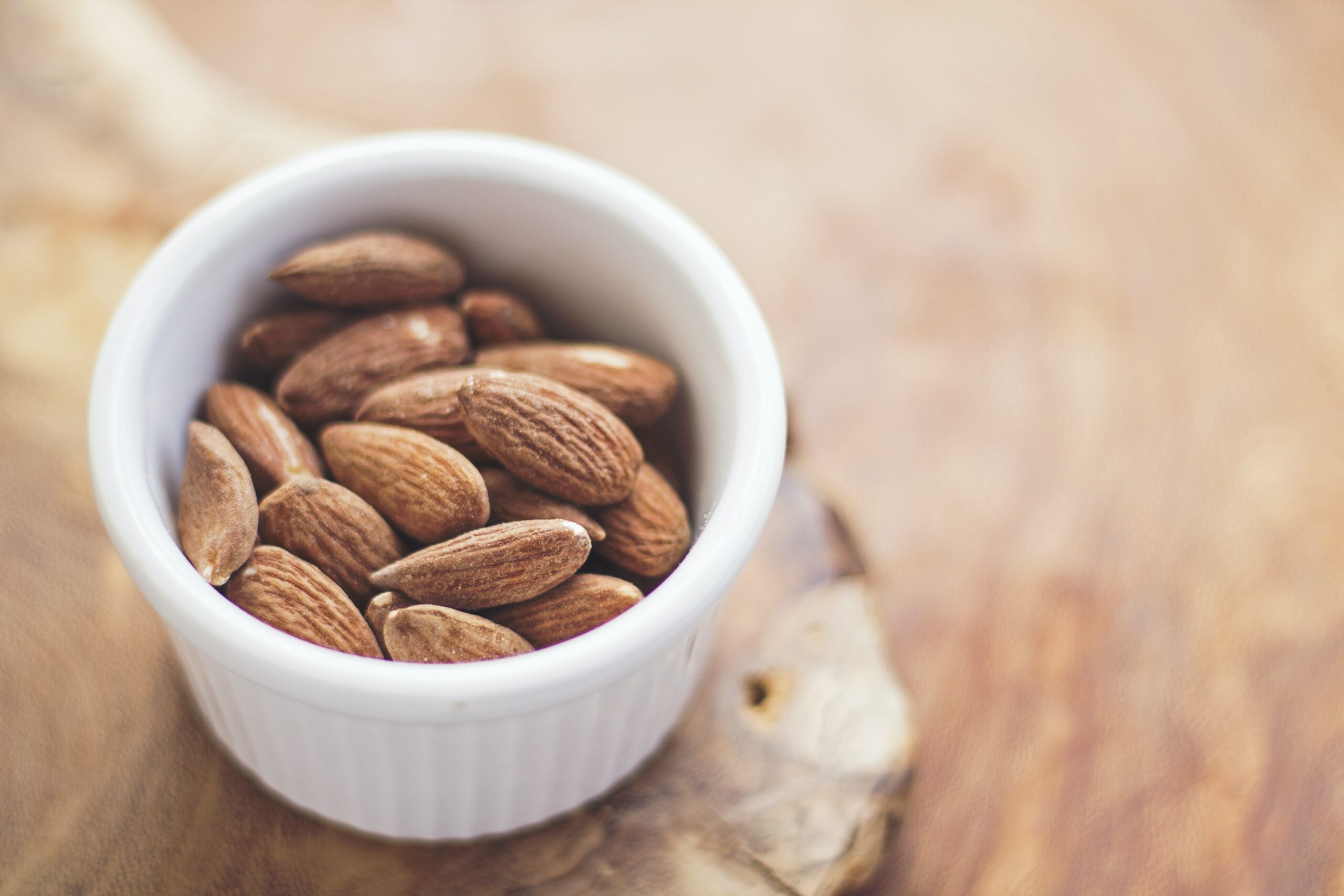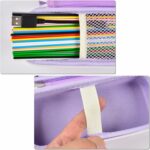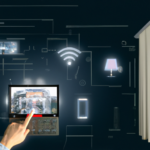In today’s fast-paced world, it can be challenging to keep track of our dietary habits and ensure we are meeting our nutritional goals. However, thanks to the advancement in technology, there are now various apps and gadgets available that can make monitoring your diet easier than ever before. With “Digital Nutrition: Apps and Gadgets That Help Monitor Your Diet,” you can have a convenient and efficient way to keep tabs on your food intake, track your nutrients, and make more informed choices about your health. Say goodbye to guessing and hello to a well-balanced diet with these innovative tools.
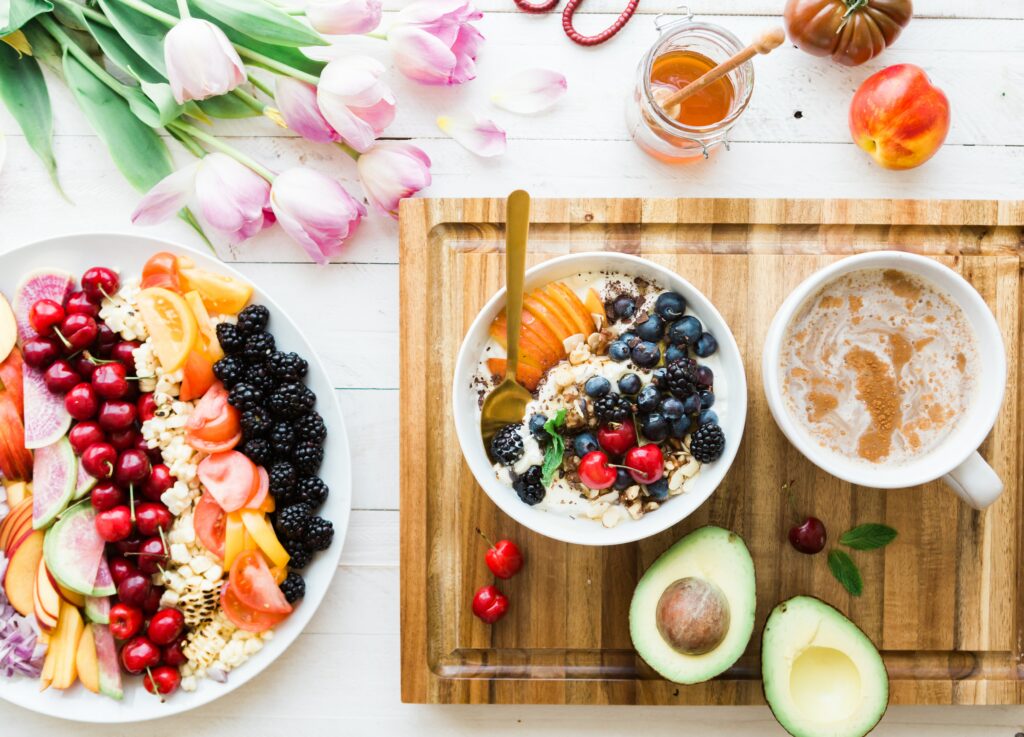
Benefits of Digital Nutrition
Convenience and Accessibility
Digital nutrition offers the convenience and accessibility that traditional methods of tracking nutrition cannot match. With the use of nutrition tracking apps and smart kitchen gadgets, you have easy access to all the information you need to monitor your diet right at your fingertips. Whether you’re at home, at work, or on the go, you can easily track your calorie intake, macronutrient consumption, and meal planning. This makes it easier than ever to stay on track with your dietary goals, no matter where you are.
Personalized Tracking
One of the greatest advantages of digital nutrition is the ability to personalize your tracking. Unlike traditional methods where you may need to manually record your food intake and calculate the nutritional content, nutrition tracking apps do all the work for you. These apps have extensive databases of food items and their nutritional values, allowing you to simply search and select what you’ve eaten. The app then calculates the calories and macronutrients for you, giving you a clear picture of your dietary intake.
Enhanced Accountability
Digital nutrition also enhances accountability in your dieting journey. By using nutrition tracking apps, you become more aware of what you’re eating and the nutritional value of your food choices. This awareness can help you make more informed decisions and hold yourself accountable for your dietary habits. Additionally, many apps allow you to set goals and track your progress, providing a sense of accountability and motivation to stay on track.
Improved Goal Setting
With digital nutrition, setting and achieving your dietary goals becomes easier and more effective. Nutrition tracking apps allow you to set specific goals, such as calorie intake or macronutrient ratios, and track your progress towards these goals. This real-time feedback helps you understand if you’re on track or if adjustments need to be made. The ability to set goals and monitor progress in a clear and measurable way can greatly improve your chances of success in reaching your desired outcomes.
Nutrition Tracking Apps
Calorie Counters
One of the most popular types of nutrition tracking apps are calorie counters. These apps allow you to easily track your daily calorie intake by entering the foods you’ve eaten and their portion sizes. The app then calculates the total calories consumed, giving you a comprehensive view of your daily calorie intake. Calorie counters are especially helpful for those looking to manage their weight, as they provide a clear understanding of energy balance and can help you make informed decisions about your food choices.
Macronutrient Trackers
For individuals who are more focused on tracking their macronutrient intake, there are many nutrition tracking apps specifically designed for this purpose. These apps allow you to set specific macronutrient targets, such as grams of protein, carbohydrates, and fat, and track your intake throughout the day. This is especially beneficial for those following specific dietary protocols, such as a high-protein diet or a low-carb diet. By monitoring your macronutrient consumption, you can ensure you’re meeting your nutritional needs and staying on track with your dietary goals.
Meal Planning and Recipe Apps
Meal planning and recipe apps are another valuable tool in the world of digital nutrition. These apps provide you with an extensive database of recipes, meal plans, and grocery lists, making it easier than ever to plan and prepare healthy meals. Many of these apps also have built-in nutrition tracking features, allowing you to easily track the nutritional content of the meals you plan and prepare. Meal planning and recipe apps can be particularly useful for individuals who struggle with meal ideas or who want to try new and healthy recipes.
Water Intake Trackers
Staying hydrated is a crucial part of a healthy diet, and fortunately, there are apps available to help you track your water intake. Water intake trackers allow you to set daily water intake goals and monitor your progress throughout the day. These apps often send reminders and notifications to encourage you to stay hydrated. Monitoring your water intake can help ensure you’re meeting your hydration needs, which has numerous benefits for overall health and well-being.
Smart Kitchen Gadgets
Smart Scales
Smart scales are a revolutionary tool for those who want to ensure precise portion control and accurate tracking of their food intake. These scales connect to your smartphone or nutrition tracking app and provide detailed information about the weight of the food you’re measuring. This allows for accurate calorie and macronutrient tracking, as well as portion control. Smart scales can be especially valuable for individuals who are following strict dietary protocols or who want to ensure consistent and accurate tracking of their food intake.
Food Scanners
Food scanners are another innovative smart kitchen gadget that can greatly simplify the process of tracking your nutritional intake. These handheld devices use infrared technology to scan the barcode or QR code on food packaging and instantly provide detailed nutritional information. This eliminates the need for manual entry and ensures accurate tracking of calories, macronutrients, and other nutritional data. Food scanners are particularly beneficial for individuals who consume a lot of pre-packaged foods and want to easily and accurately track their nutritional intake.
Nutrition Analyzers
Nutrition analyzers are advanced gadgets that use near-infrared light to analyze the composition of your food. By placing your food on a designated area, these devices can provide detailed information about the macronutrient content, as well as other nutritional data like vitamins and minerals. Nutrition analyzers can be used in conjunction with nutrition tracking apps to ensure precise and accurate tracking of your food intake. These gadgets are especially valuable for individuals who want to gain a comprehensive understanding of the nutritional composition of the foods they consume.
Smart Bottles and Cups
Smart bottles and cups are innovative tools that help you track your liquid consumption. These devices often come with sensors that measure the volume of liquid you drink and transmit the data to a connected app. This allows for accurate tracking of daily water intake, as well as other beverages like juices and smoothies. Smart bottles and cups are particularly beneficial for individuals who struggle with staying hydrated or who want to monitor their liquid intake for specific health goals.
Fitness and Exercise Trackers
Integration with Nutrition Apps
To provide a holistic approach to health tracking, many fitness and exercise trackers integrate seamlessly with nutrition apps. This integration allows you to track both your physical activity and your dietary intake in one place, giving you a complete view of your overall health and wellness. By having all your health data in one app, you can easily analyze the correlation between your exercise routine and your nutrition, making it easier for you to make informed decisions about your lifestyle choices.
Calorie Tracking during Workouts
For individuals who want to track their calorie burn during workouts, many fitness and exercise trackers offer calorie tracking features. These trackers use a combination of heart rate monitoring and other sensors to estimate the calories burned during various types of physical activity. This information can be useful if you’re trying to create an energy deficit for weight loss or if you simply want to have a better understanding of the energy expenditure during your workouts. By tracking your calorie burn, you can adjust your dietary intake accordingly to support your fitness goals.
Sleep and Activity Monitoring
Aside from tracking physical activity, fitness and exercise trackers often come equipped with sleep and activity monitoring features. These features allow you to track your sleep duration and quality, as well as your daily activity levels and steps taken. Monitoring your sleep and activity patterns can provide valuable insights into your overall health and well-being. By understanding your sleep patterns, you can make adjustments to improve the quality and quantity of your sleep. Similarly, tracking your daily activity levels can help you ensure you’re meeting recommended guidelines for physical activity.
Heart Rate and Health Monitoring
Many fitness and exercise trackers include heart rate monitoring capabilities, which allow you to track your heart rate during workouts and throughout the day. By monitoring your heart rate, you can gauge the intensity of your workouts, ensure you’re staying within your target heart rate zones, and track your cardiovascular fitness over time. Some trackers also offer additional health monitoring features, such as blood pressure monitoring or stress tracking, which can provide valuable insights into your overall well-being.
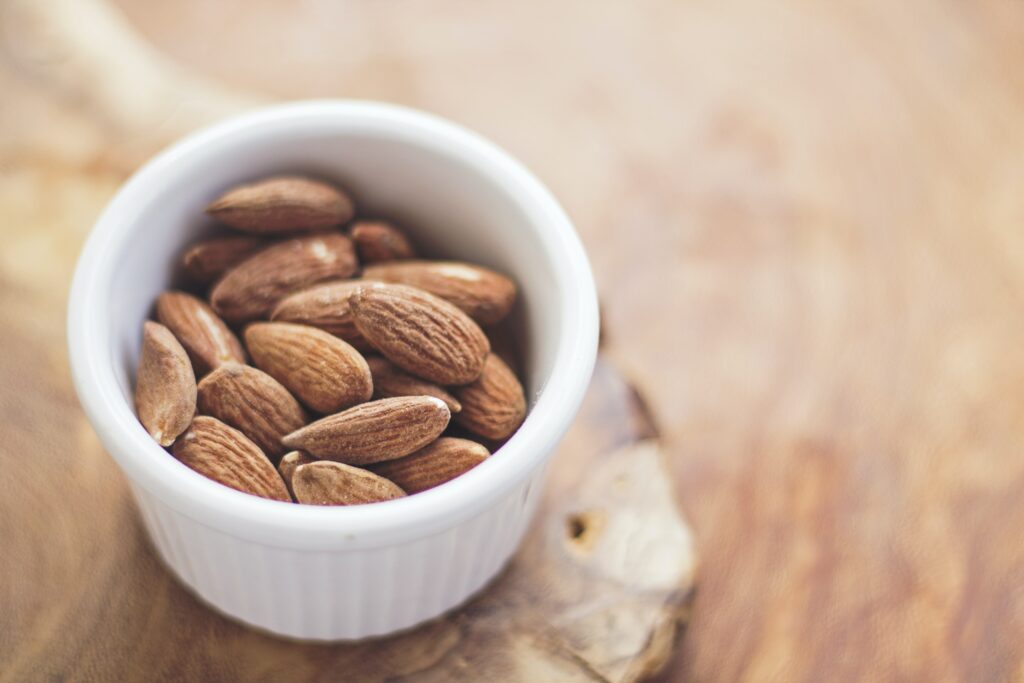
Challenges and Limitations of Digital Nutrition
Reliability and Accuracy of Data
As with any technology, there are challenges and limitations to consider when it comes to digital nutrition. One of the main concerns is the reliability and accuracy of the data provided by nutrition tracking apps and smart kitchen gadgets. While these tools strive to provide accurate information, there can be inaccuracies in the nutritional databases or variations in portion sizes that can affect the accuracy of the data. It’s important to keep in mind that digital nutrition tools should be used as a guide rather than solely relying on them for precise measurements.
Dependency on Technology
Another potential limitation of digital nutrition is the dependency on technology. Using nutrition tracking apps and smart kitchen gadgets requires access to smartphones or other devices and a stable internet connection. If these are unavailable, it can be challenging to track your nutrition or use certain features of the digital tools. Additionally, technical issues or device malfunctions can disrupt the tracking process. It’s important to have a backup plan and not solely rely on digital tools for your nutrition tracking needs.
Privacy and Data Security Concerns
With the widespread use of digital technology, there are legitimate concerns about privacy and data security. When using nutrition tracking apps or smart kitchen gadgets, you may be sharing personal information, such as your dietary habits, with third-party companies. It’s essential to read the privacy policies of these tools and ensure that your data is being handled securely and responsibly. Being mindful of the information you share and taking steps to protect your privacy can help alleviate some of these concerns.
Potential Obsession or Disordered Eating
While digital nutrition tools can be incredibly helpful for tracking and monitoring your diet, there is a risk of becoming too obsessed with the numbers and developing disordered eating behaviors. Constantly tracking every calorie and macronutrient can create an unhealthy relationship with food and contribute to an unhealthy preoccupation with weight and body image. It’s important to use these tools as a means of support and guidance, rather than becoming overly fixated on the numbers. If you find that digital nutrition tools are negatively impacting your mental health or relationship with food, it may be necessary to seek professional help.
Gamification of Nutrition
Rewards and Achievements
One of the exciting aspects of digital nutrition is the gamification element. Many nutrition tracking apps and fitness trackers incorporate rewards and achievements to make the process of healthy eating more engaging. By reaching goals, logging meals consistently, or completing challenges, you can earn virtual rewards or unlock achievements, adding a fun and motivating element to your nutrition journey. These rewards and achievements can provide a sense of accomplishment and motivate you to continue making healthy choices.
Challenges and Competitions
In addition to individual rewards and achievements, some nutrition apps and fitness trackers offer challenges and competitions that allow you to compete with friends or other users. These challenges can be based on various goals, such as steps taken, calories burned, or water consumption. Competing against others or participating in challenges can create a sense of camaraderie and motivate you to push yourself further to reach your goals. The friendly competition can make healthy eating and tracking more interactive and enjoyable.
Social Sharing and Support
Digital nutrition tools often include social sharing features that allow you to share your progress, achievements, and favorite recipes with others. This social aspect can provide a support system and a sense of community. By connecting with like-minded individuals who are also on a health and wellness journey, you can exchange tips, recipes, and encouragement. Social sharing can help you stay motivated and accountable while also inspiring and supporting others on their own nutrition journeys.
Motivational Feedback
Digital nutrition tools can also provide motivational feedback to keep you motivated and engaged. From daily reminders to positive messages and feedback, these tools can offer encouragement and gentle reminders to stay on track with your goals. Additionally, some apps use artificial intelligence to provide personalized recommendations and suggestions based on your dietary habits and goals. This personalized feedback can help you make more informed choices and stay focused on your nutrition goals.
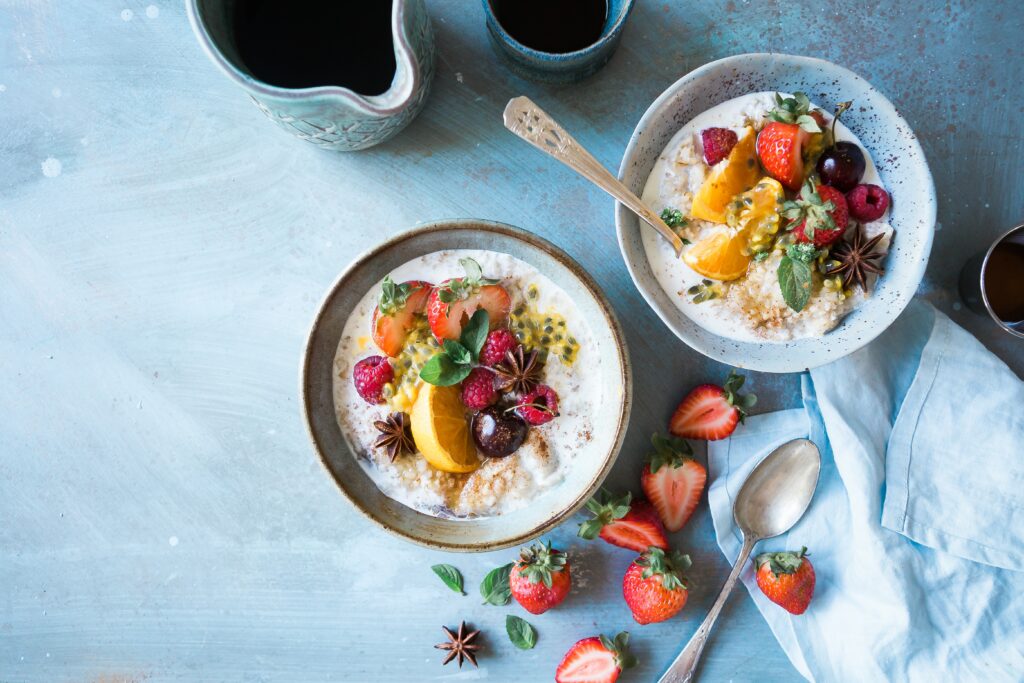
Digital Nutrition as a Tool for Weight Loss
Visualization of Progress
One of the key benefits of digital nutrition for weight loss is the ability to visualize your progress. Nutrition tracking apps often provide visual representations of your daily calorie intake, macronutrient ratios, and other important metrics. These visual representations can help you see patterns and trends in your dietary habits, making it easier to identify areas for improvement. By visualizing your progress, you can track your success and make adjustments as needed to achieve your weight loss goals.
Real-Time Feedback
Digital nutrition tools provide real-time feedback on your dietary choices and habits. As you log your meals and track your nutrition, these tools can provide instant feedback on the nutritional content of your food choices. This feedback allows you to make informed decisions about what you eat, ensuring that you stay within your target calorie range or macronutrient goals. Real-time feedback helps you understand the immediate impact of your food choices and empowers you to make healthier decisions.
Behavioral Analysis and Insights
Digital nutrition tools offer behavioral analysis and insights that can help you understand your dietary habits on a deeper level. By analyzing your tracking data over time, these tools can identify patterns and trends in your eating behaviors. For example, they might uncover that you tend to consume more calories on certain days of the week or that you often reach for unhealthy snacks during certain times of the day. This information can help you better understand your triggers and make positive changes to your eating habits.
Virtual Coaching and Support
In addition to tracking and feedback, some digital nutrition tools offer virtual coaching and support. These tools often provide personalized recommendations, meal plans, and coaching sessions to help you stay on track with your weight loss goals. Virtual coaching can provide guidance, accountability, and motivation, as well as answer any questions you may have along the way. This virtual support can be particularly beneficial for individuals who may not have access to in-person coaching or who prefer the convenience and flexibility of virtual interactions.
Digital Nutrition for Specific Dietary Needs
Vegetarian and Vegan Diets
Digital nutrition tools can be invaluable for individuals following vegetarian and vegan diets. Many nutrition tracking apps have extensive databases of plant-based food options, making it easy to track the nutritional content of vegetarian or vegan meals. Additionally, some apps offer features specifically tailored to vegetarian and vegan diets, such as ingredient substitutions or recipe recommendations. These tools can help ensure that individuals following vegetarian or vegan diets are meeting their nutritional needs and have a variety of meal options.
Gluten-Free and Allergen-Free Eating
For individuals with gluten sensitivities or allergies, digital nutrition tools can be a game-changer. These tools often have databases of gluten-free products and recipes, making it easy to track gluten-free options and ensure compliance with a gluten-free diet. Similarly, for those with other food allergies or sensitivities, nutrition tracking apps can help identify potential allergens in food items and track consumption accordingly. This can make dining out or grocery shopping much easier and provide peace of mind for individuals with specific dietary needs.
Ketogenic and Low-Carb Diets
Digital nutrition tools are also highly beneficial for individuals following ketogenic or low-carb diets. These tools often have a specific focus on tracking macronutrients, making it easy to monitor and adjust your intake of carbohydrates, fats, and proteins. Many apps also offer databases of keto-friendly recipes and meal plans, providing inspiration and guidance for those following a ketogenic or low-carb lifestyle. By tracking your macronutrient ratios, you can ensure you’re staying within the desired range for your chosen dietary approach.
Monitoring Nutrient Deficiencies
Digital nutrition tools can assist in monitoring nutrient deficiencies and ensuring you’re meeting your daily nutrient requirements. Some apps provide detailed breakdowns of the vitamins and minerals in the foods you consume, allowing you to track your intake of specific nutrients. This can be particularly beneficial for individuals with specific dietary restrictions or health conditions that may require close monitoring of certain nutrients. By tracking nutrient intake, you can identify areas where you may be lacking and make adjustments to ensure you’re meeting your nutritional needs.
The Future of Digital Nutrition
Advanced Artificial Intelligence
The future of digital nutrition holds exciting advancements in the field of artificial intelligence (AI). AI-powered nutrition tracking apps and gadgets have the potential to provide even more accurate and personalized data analysis. These tools may be able to analyze not only the macronutrient and calorie content of your meals but also provide insights into the overall nutritional quality and balance. Advanced AI algorithms can offer custom meal recommendations and dietary adjustments based on your unique needs and goals, taking digital nutrition to a whole new level.
Integration with Wearable Devices
The integration between nutrition apps and wearable devices is another promising aspect of the future of digital nutrition. As wearable technology continues to evolve, the ability to seamlessly track your nutrition data in conjunction with physiological data like heart rate, sleep patterns, and activity levels can provide a comprehensive view of your overall health. By combining data from wearable devices and nutrition tracking apps, you can gain a deeper understanding of the impact of your dietary choices on your overall well-being.
Continuous Glucose Monitoring
Continuous glucose monitoring (CGM) is a breakthrough technology that has the potential to transform digital nutrition. CGM involves wearing a device that continuously measures your glucose levels throughout the day. By integrating this data with nutrition tracking apps, you can gain insights into how different foods and meals affect your blood sugar levels. This information is invaluable for individuals with diabetes or those who want to optimize their dietary choices for blood sugar management. Continuous glucose monitoring can provide real-time feedback and help you make more informed decisions about your carbohydrate consumption.
Data Sharing between Healthcare Providers
The future of digital nutrition also includes improved data sharing between healthcare providers. By securely and efficiently sharing nutrition tracking data with registered dietitians, doctors, or other healthcare professionals, you can receive personalized guidance and support. This collaboration can lead to more effective interventions and improved outcomes. Having seamless data sharing capabilities allows for a more integrated approach to healthcare and enhances the convenience and effectiveness of digital nutrition tools.
Conclusion
Digital nutrition has revolutionized the way we monitor and manage our dietary habits. With the convenience and accessibility of nutrition tracking apps, along with the innovation of smart kitchen gadgets and fitness trackers, achieving your health and wellness goals has never been easier. Whether you’re looking to lose weight, manage specific dietary needs, or simply improve your overall nutrition, digital tools offer a comprehensive solution. While there are challenges and limitations to consider, the benefits of digital nutrition far outweigh the drawbacks. By embracing this evolving technology and using it as a tool to support your healthy lifestyle, you can take control of your nutrition and embark on a journey towards optimal health and well-being.
